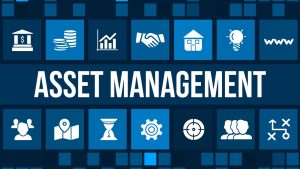Singapore is one of the leading biomedical and pharmaceutical hubs in Asia. Since 2000, when the Singapore government launched the Biomedical Sciences (BMS) initiative, the country has attracted foreign and private investors that have led to the subsequent development of this sector. Hence, research in this field took momentum, leading to the pharmaceutical and biological industry’s manufacturing output being valued in billions since 2010. With the increased standardisations and responsibilities pharmaceutical companies must undergo, an enterprise resource planning (ERP) system is a valuable software solution that helps automate and streamline a range of processors. This article will detail the role of ERP in the pharmaceutical industry.
What Exactly Occurs in the Pharmaceutical Industry?
The pharmaceutical industry deals with research, selling medical drugs, setting regulations and more. This industry is also quite different from the typical business sector. For instance, the customer is not merely a consumer but is a patient. They do not have the independent freedom to purchase any drug in a pharmacy and must instead be prescribed the medicine by a physician or doctor. Hence, the pharmaceutical industry is one of the most regulated sectors in the world. This means they must be careful and adhere to various national and sometimes international requirements.
What is an ERP?
An ERP is a cloud or web-based solution that integrates everything in your organisation, be it in terms of business processors or applications under one platform. It helps to automate a range of mundane processors, assists in financial matters provides futuristic insights on market conditions and consumers and enables you to keep track of sales, the supply chain and the inventory. All this helps with eliminating errors and optimising functions in the industry. The features of an ERP system can depend according to the sector it is being used for. Hence, in the pharmaceutical industry, specific models would be more strictly required in the pharmaceutical industry for a company to unlock all the benefits of an ERP system. This demonstrates that an ERP system can be customised according to the needs of the industry or the company, for that matter. Knowledge of this would help companies find a vendor who can ensure data security and guarantee the improvement of their company operations. The great thing about an ERP solution is that it complements and is accessible to SMEs who can use it to scale upwards.
How Can Pharmaceutical Companies Benefit From an ERP System?
Modern Pharma companies are increasingly deploying ERP solutions to streamline their multi-faceted industry roles. It helps them with research, product development, manufacturing, testing and distribution. Here are a few ways how pharmaceutical companies benefit from an ERP system:
Manage Formulation More Effectively
As the pharmaceutical industry is consistently on the verge of creating new medical products, formulation management becomes a key challenge. Formulation consists of effectively managing all information compiled through thorough research and hard work when making a product. It requires documenting everything from the combination of pharma technologies, excipients, tablets, capsule matrices, parenteral co-factors and a range of other vital information to be available. This is because it is the entire process that a board will examine to assess whether the medical product has a high degree of safety and demonstrable efficacy. Hence, withholding or missing out on information, even by accident, could drastically affect your reputation as a manufacturer. With an ERP system, you can easily document every formula and ensure they are updated when needed. This also makes it easy to receive formula approval and find the correct sizing.
Keep Better Track of Your Inventory
While standard forms of medicine that the general public regularly purchases may be tracked properly, stocks of other types of drugs, which require health patients to have a prescription to purchase them, may not always be monitored. Hence, pharmaceutical companies unknowingly run out of drugs until it is too late. This is because manually trying to keep track of the total number of medicine brought and sold can be hard when there are too many products in the industry. An ERP system, however, automates this process. There will no longer be a need for anyone to go back and count each box daily. Instead, when a person purchases a dose, it updates the inventory and notifies the manager when it needs restocking. This allows managers to order a new batch before it completely runs out.
Regulatory Compliance
Like any other country, Singapore has its own regulations for the pharmaceutical industry. Specifically, the Health Services Authority in Singapore bears the responsibility to regulate and ensure drugs, innovative therapeutics, medical devices, and other health products meet the appropriate safety, quality and efficacy standards. While companies are required to apply for approval to speed up the process, many rush through the evidence compilation stage. While this is a necessary process, it can be a real challenge, pressuring companies to provide the latest test results of the health product and other important documentation correctly. If, however, such a company already has an ERP system, you can easily track your organisation’s compliance via the quality assurance capability tools incorporated into the solution. Hence, an ERP helps you to strictly abide by the regulations set by the government to avoid penalties.
Ensure You Meet Quality Protocols are in Place Even After Regulatory Approval
Just because a company got approval from the respective governmental body that they met, the regulations do not mean your responsibility stops there. Pharma companies must consistently meet quality standards even within the supply chain. For instance, protocols should guarantee that no expired products are given or sold to any consumer. Such mistakes can occur if an effective system is not in place to inform you of products near expiration. Hence, an ERP system can be implemented to help you in this respect. For example, using bar codes, pharma companies should be able to automatically record the expiration date in the system when the stock of medical products is unloaded into the store. The system will take care to dispatch notifications when the expiration date is nearing and again when it has expired, requiring you to destroy such medicine.
Product Costing
As previously mentioned, the number of pharmaceutical products makes it hard to keep track of everything. This includes prices. With every product that enters the system, there is a need to cost them. To do so, there should be a standard mode of ascertaining the fairest price a medicine can be sold for. Costing of drugs will consider multiple factors, including, the management of materials, the procurement cost, finances involved in the supply chain, vendor management cost, and more. If a manual system is implemented, information concerning each process will be collected in silos. However, in an ERP solution that is cloud or web-based, data is exchanged and communicated to all branches. Hence, as ERP offers a central platform for collecting all data, it can efficiently reflect the total cost used for a specific product. Thus, a neutral system is provided.
Predicting Scalability
Predicting scalability in the context of pharma companies refers to how much of a demand a certain drug has. This piece of information helps manufacturers to assess how many should be made. Trying to reliably ascertain this can be hard, even if the best data analyst is hired. It is also an extremely time-consuming and costly role. However, this process can be streamlined with the help of an ERP system. By integrating predictive analytical capabilities, the centralised platform can easily assess the demand for a certain drug and ensure its supplies are met. Knowledge of such information also helps decide the cost of a product to ensure it is accessible to the public. Such data can also be beneficial for manufacturers to manage the variability of health products.
Level Up Your Pharmaceutical Responsibilities with a Powerful ERP Solution

With the number of quality standards, regulatory compliance and rules embedded in the pharmaceutical industry, actors in this sector hold an increased responsibility to ensure their processors meet all standards. This is also because this specifically deals with the life of humans, requiring pharma organisations to take due diligence seriously. Many companies find themselves drawing with executing these functions, thereby not being able to focus on the growth and progression of their company. It is time to implement an ERP solution and effectively manage your time, resources and finances.






